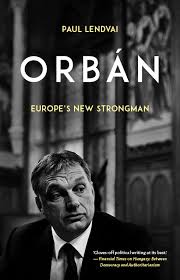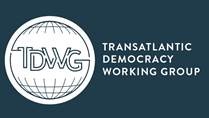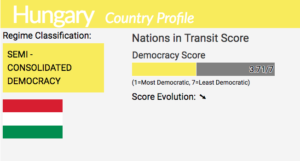 The European parliamentary elections, which will take place later this month, offer Prime Minister Viktor Orbán the chance to build a right-wing populist coalition across Europe, according to Kim Lane Scheppele, the Laurance S. Rockefeller professor of sociology and international affairs at Princeton University.
The European parliamentary elections, which will take place later this month, offer Prime Minister Viktor Orbán the chance to build a right-wing populist coalition across Europe, according to Kim Lane Scheppele, the Laurance S. Rockefeller professor of sociology and international affairs at Princeton University.
Orbán comes to his Europe-wide populist project after defying the European People’s Party (EPP), the center-right European political party that his national Fidesz party joined when Hungary acceded to the EU, she writes for Foreign Affairs.
This week’s visit to Washington, D.C. will be viewed as a boost to populists and another blow to Europe’s strained political center, argues CFR analyst Charles A. Kupchan.
Orbán is following a kind of Putin playbook in order to bring democracy to an end and make sure that he stays in power, notes Anne Applebaum, a National Endowment for Democracy board member.
Hungary’s illiberal leader owes his success to a strategy of legal incrementalism, some analysts suggest.
 “Viktor Orbán’s a lawyer, and he works like a lawyer and he works by the law,” says Princeton’s Scheppele, an expert on Hungary. “And in that way, what that enables him to do is to pass legal reforms that are instructions to the government, instructions to the civil service. He actually creates a legal blueprint that captures everybody in its web.”
“Viktor Orbán’s a lawyer, and he works like a lawyer and he works by the law,” says Princeton’s Scheppele, an expert on Hungary. “And in that way, what that enables him to do is to pass legal reforms that are instructions to the government, instructions to the civil service. He actually creates a legal blueprint that captures everybody in its web.”
Orbán is considered a brilliant political tactician whose ruthlessness was forged after his Fidesz party lost elections in 2002 and he found himself out of power, NPR adds.
Thirty years after first meeting Orbán, Bernard-Henri Lévy explains for The Atlantic how an anti-totalitarian militant discovered ultranationalism.
 Members of Congress have urged President Trump to cancel his planned meeting with Orbán in a letter voicing deep concern about his crackdown on democracy, increased Russian and Chinese influence, and use of anti-Semitic and xenophobic language. In a bipartisan letter, Jim Risch (R-Idaho) and Bob Menendez (D-N.J.), chairman and ranking member of the Senate Foreign Relations Committee, along with Marco Rubio (R-Fla.) and Jeanne Shaheen (D-N.H.), senior members of the committee, expressed concern over Hungary’s downward democratic trajectory and the implications for U.S. interests in Central Europe. Full text of the letter can be found here [HT: Transatlantic Democracy Working Group].
Members of Congress have urged President Trump to cancel his planned meeting with Orbán in a letter voicing deep concern about his crackdown on democracy, increased Russian and Chinese influence, and use of anti-Semitic and xenophobic language. In a bipartisan letter, Jim Risch (R-Idaho) and Bob Menendez (D-N.J.), chairman and ranking member of the Senate Foreign Relations Committee, along with Marco Rubio (R-Fla.) and Jeanne Shaheen (D-N.H.), senior members of the committee, expressed concern over Hungary’s downward democratic trajectory and the implications for U.S. interests in Central Europe. Full text of the letter can be found here [HT: Transatlantic Democracy Working Group].
 Not only are prominent political leaders like Orbán trying to turn conservatives against liberal democracy—so are well-respected intellectuals on the Right, notes Marc F. Plattner,* the founding coeditor of the Journal of Democracy, and co-chair of the research council of the National Endowment for Democracy’s International Forum for Democratic Studies. There is likely to be a continuing struggle on the Right over this fundamental issue, and its outcome may well be decisive for the future both of conservatism and of liberal democracy.
Not only are prominent political leaders like Orbán trying to turn conservatives against liberal democracy—so are well-respected intellectuals on the Right, notes Marc F. Plattner,* the founding coeditor of the Journal of Democracy, and co-chair of the research council of the National Endowment for Democracy’s International Forum for Democratic Studies. There is likely to be a continuing struggle on the Right over this fundamental issue, and its outcome may well be decisive for the future both of conservatism and of liberal democracy.
Orbán’s politics skew authoritarian: He has repressed civil society and the media while fueling corruption, xenophobia and anti-Semitism, adds Jonathan Katz, a senior fellow with the German Marshall Fund of the United States.
*This post is drawn from a longer essay published in the January 2019 issue of the Journal of Democracy under the title, “Illiberal Democracy and the Struggle on the Right.”







